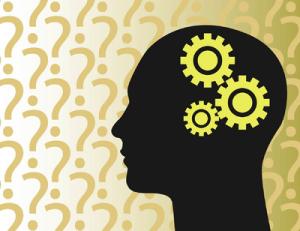- MENU
- HOME
- SEARCH
- WORLD
- MAIN
- AFRICA
- ASIA
- BALKANS
- EUROPE
- LATIN AMERICA
- MIDDLE EAST
- United Kingdom
- United States
- Argentina
- Australia
- Austria
- Benelux
- Brazil
- Canada
- China
- France
- Germany
- Greece
- Hungary
- India
- Indonesia
- Ireland
- Israel
- Italy
- Japan
- Korea
- Mexico
- New Zealand
- Pakistan
- Philippines
- Poland
- Russia
- South Africa
- Spain
- Taiwan
- Turkey
- USA
- BUSINESS
- WEALTH
- STOCKS
- TECH
- HEALTH
- LIFESTYLE
- ENTERTAINMENT
- SPORTS
- RSS
- iHaveNet.com: Recipes
By Katherine Hobson

To do all you can to maintain your mental abilities as you age, you really should be exercising.
In an attempt to hang on to your cognitive function as you age, you may do crossword puzzles, join a book club, or keep up friendships to stay connected. But to do all you can to maintain your mental abilities, you really should be exercising regularly.
That's the conclusion of a review published by the Association for Psychological Science.
It's not a new idea; the paper surveys the available research on the topic and concludes that cognitive enrichment activities -- puzzles, social interaction, and the like -- may well help you preserve brain function as you age. But they were especially complimentary towards physical activity.
"What is most impressive to us," the authors write, "is the evidence demonstrating benefits of aerobic physical exercise on cognitive functioning in older adults."
Studies in both animals and humans "overwhelmingly" indicate that exercise helps the brain, they write, both generally and also specifically in executive functioning (things like deciding to change behavior or planning ahead), short-term memory, and focusing and maintaining attention. Arthur Kramer, a neuroscientist at the University of Illinois at Urbana-Champaign and one of the report's authors, said at a news conference Wednesday that there's enough evidence to launch a public policy campaign that includes an endorsement of exercise to improve brain function.
It doesn't surprise John Ratey, a psychiatrist at Harvard Medical School and author of Spark: The Revolutionary New Science of Exercise and the Brain.
Regular exercise, like mental stimulation, provides a "challenge" to the brain, he says. "The brain needs to get the message that we need it to keep functioning," says Ratey. A bunch of different mechanisms are thought to be responsible for the exercise-brain connection, including a growth factor called FGF-2 that is produced by exercise and is thought to be involved in the generation of new neurons.
The authors of the report emphasized the benefits of moderate exercise, saying that while walking distance was related to cognitive ability (the more you walk, the better), walking speed was not.
That's certainly healthful, but Ratey says there might be additional benefits gained by interval training -- short bursts of intense activity followed by rest periods.
When you exercise more intensely, your brain produces human growth hormone that cuts belly fat, adds muscle, and "pump(s) up" brain volume, Ratey explains in Spark. It also produces more nitric oxide than steady training, he told me this week. "That's the cardiologist's best friend; it does so many good things for the vascular system," he says, including acting as a "Roto-Rooter" for your small blood vessels.
While you should certainly speak with a doctor before starting any intense exercise program, particularly if you're new to exercise or have health issues, don't dismiss the idea entirely because of your age or physical condition.
A study in Circulation found that even elderly heart failure patients, under medical supervision, benefited from interval training.
Explore More Health & Wellness
AGING | ALTERNATIVE | AILMENTS | DRUGS | FITNESS | GENETICS | CHILDREN'S | MEN'S | WOMEN'S
- The Power of Positive Thinking Is Psychology's Latest Focus
- How Positive Psychology Increases Happiness
- Positive Psychology & Relationships
- Exercise Boosts Your Brainpower; Intensity Matters
- Why People Tell Lies & Why White Lies are Okay
- Positive Emotional Psychology: Daily Diet of Positive Emotions
- How Humor Can Help Stave Off Heart Attacks & Strokes
- 3 Tips for Boosting Your Fitness as You Age: One Triathlete's Advice
- Walking is a Step in the Right Direction Towards Fitness
- Common Questions About Weight Loss
- Tai Chi Health Benefits
- Swimming: Take the Plunge for Your Heart
- Smart Fitness for Grown-Ups: Tips for the Over-40 Exerciser
- Vegetarian Diets & Men's Health Benefits
- Statins & Prostate Cancer
- Genetic Screening for Prostate Cancer
- Allergic Rhinitis: Your Nose Knows
- Sexuality & Seniority
- Enlarged Prostate, Proscar Medication & Osteoporosis
- Ten Commandments of Cancer Prevention
How Regular Exercise Boosts Your Brainpower as You Age
Article: Copyright © Tribine Media Services